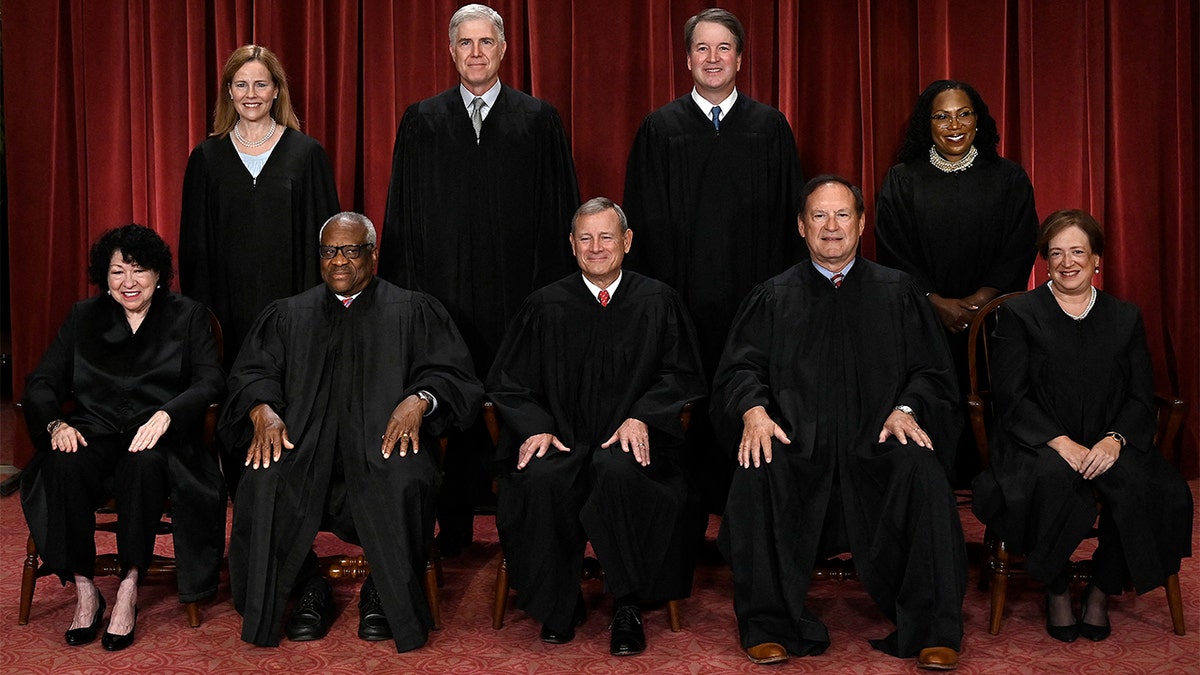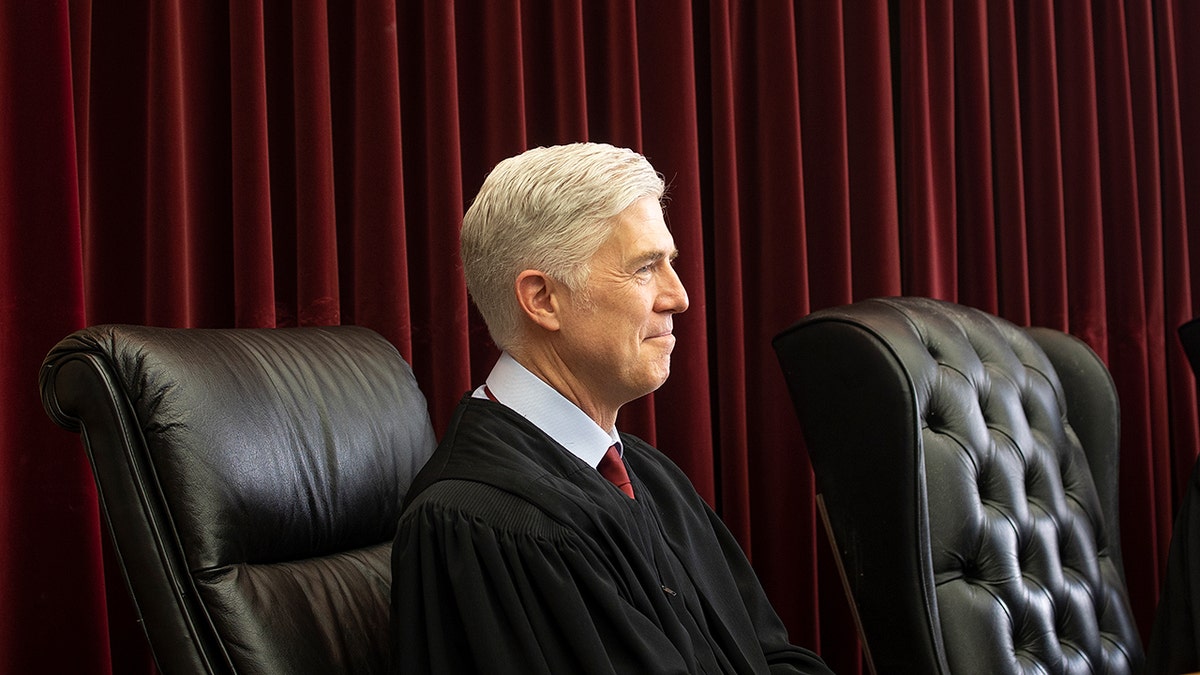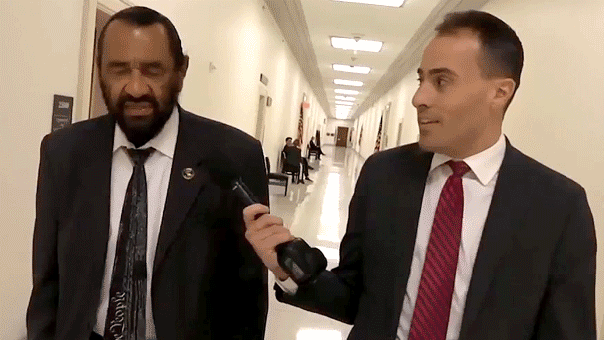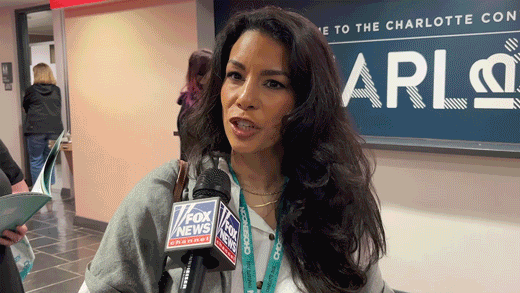Justice Neil Gorsuch discusses presidential immunity case
Supreme Court Justice Neil Gorsuch discusses the decision on presidential immunity in the midst of Trump's court cases.
Supreme Court Justice Neil Gorsuch explained the court's logic behind the pivotal ruling in the presidential immunity case against former President Trump in an interview that aired on Fox News Monday.
Gorsuch was asked by "America Reports" co-anchor Sandra Smith how the high court approached the unprecedented nature of the case after the ruling was published last month declaring that a former president has substantial immunity from prosecution for official acts committed while in office, but not for unofficial acts.
"You gave us a very hard question," Gorsuch said. "It’s the first time in American history that one presidential administration was seeking to bring criminal charges against a predecessor. We had to go back and look at what sources were available to us."

Supreme Court Justices posing for an official photo at the Supreme Court. (Photo by OLIVIER DOULIERY/AFP via Getty Images)
The Trump-appointed justice said the court based its 6-3 decision on legal precedent established in the case of Nixon v. Fitzgerald, which focused on presidential immunity from civil liability for actions taken while in office.
"There are some things we can agree on. You can impeach a president if he does something unlawful. You can enjoin or stop the conduct of his officials. You can go to court and get an injunction. Those are two things we can all agree on," he said.
JUSTICE GORSUCH HAS BRIEF WARNING ABOUT BIDEN'S SCOTUS PROPOSALS: TOO MANY LAWS CAN POSE A ‘DANGER’
"We also agree that no man is above the law in his private conduct," Gorsuch continued. "Even a president can be prosecuted for speeding. His private conduct, he is like everyone else."
Gorsuch said the Supreme Court ruled in Nixon v. Fitzgerald that civil cases cannot be brought against a president, "presumptively, in his official capacity, after he leaves office."
"Why? Because that would chill him from exercising the powers and duties of a president while he is president," the justice said. "He would be overwhelmed. His political enemies would simply bring suits against him forever more. The court held that about 50 years ago."
"All the court did in this case was simply apply that same precedent and idea to the criminal context," he argued.

Supreme Court Justice Neil Gorsuch recently defended the court from the Democratic Party's calls to reform it, saying it's better for being able to make unpopular decisions. ( Andrew Lichtenstein/Corbis via Getty Images)
The decision by the conservative-dominated court means that the case of Trump v. United States, is sent back to the lower court to determine whether Trump is immune from prosecution regarding actions related to efforts to overturn the results of the 2020 election. Based on the Supreme Court's ruling, the lower court judge will have to determine whether the charges against Trump are considered official acts by the then-president or unofficial ones.
Trump celebrated the ruling as "brilliantly written and wise" at the time, calling it a "big win for our Constitution and for democracy."
President Biden labeled it a "dangerous precedent" while calling for new reforms to the Supreme Court, including term limits and a new code of conduct, and to draft a new constitutional amendment that limits presidential immunity.
CLICK HERE TO GET THE FOX NEWS APP
"This court is being used to weaponize an extreme and unchecked agenda," Biden said, calling the immunity decision "a total affront to the basic expectations we have for those who wield the power of this."
Gorsuch declined to comment when asked by Smith about Biden's proposed reforms, citing the upcoming presidential election. He did, however, warn that "too many laws" could pose a "danger" before defending the independent judiciary as "a blessing."










































